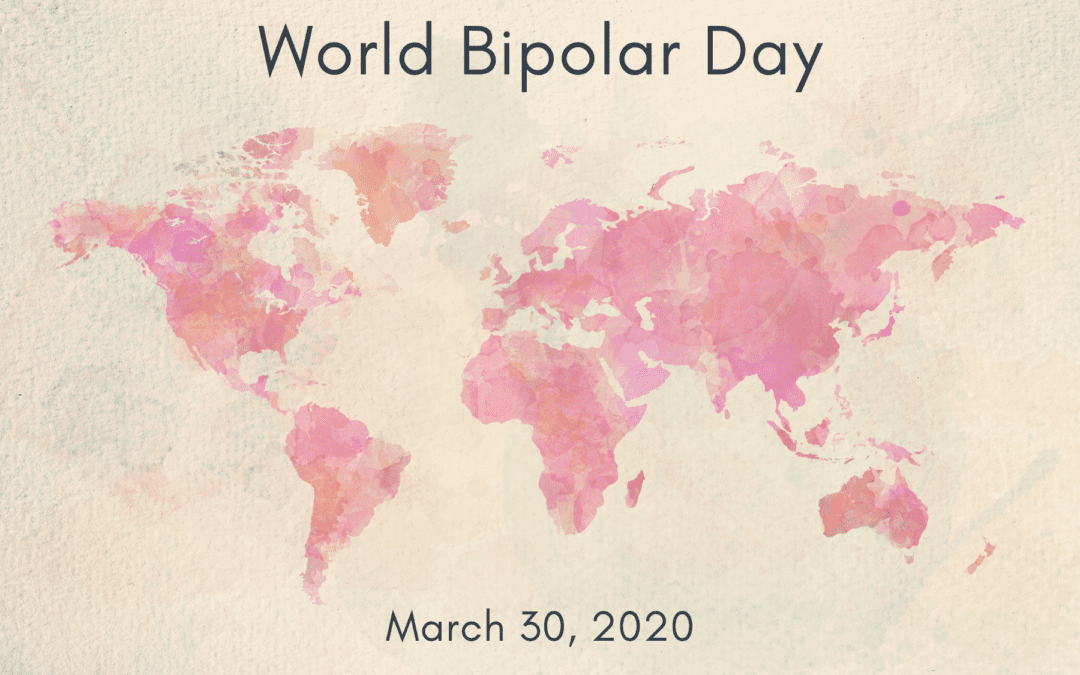Author: Cassandra Stout
Are you bipolar? There is a day on the calendar to celebrate your struggles with the disorder.
World Bipolar Day (WBD) is celebrated each year on March 30th, in honor of Vincent Van Gogh’s birthday, as he was posthumously diagnosed as probably having bipolar disorder.
The day–an initiative of the International Bipolar Foundation (IBPF), the International Society for Bipolar Disorders (ISBD), and the Asian Network of Bipolar Disorder (ANBD)–means to combat stigma and raise awareness of bipolar disorders.
Bipolar disorder is a mental illness that is marked by abrupt changes in mood, energy, and executive function–the ability to accomplish tasks on a daily basis.
Bipolar disorder comes in several forms.
People with bipolar I suffer from manic episodes–periods of increased energy, euphoric mood, and decreased need for sleep–depressive episodes–periods of intense, pervasive sadness–as well as weeks of relative stability. People who suffer from bipolar II deal with even more severe and lengthy depressive episodes and hypomania, a lesser form of mania. There’s also cyclothymia, or bipolar III, where people have lesser forms of depression and hypomania, but cycle more rapidly between the two.
Episodes of bipolar disorder are not the usual ups and downs that everyone goes through. This is a lifelong condition which interferes with day-to-day functioning. The prevalence of bipolar disorder has been estimated to be as high as 5% of people around the world.
There are several causes to bipolar disorder, including genetic components, environmental stresses, childhood trauma, and other factors.
International groups like IBPF, ISBD, and ANBD support global efforts from scientists and advocates to investigate causes of bipolar disorder, methods of diagnosis, coping strategies, and medications to successfully treat the mental illness. World Bipolar Day was created to celebrate these efforts, acknowledge the struggles of people with the disorder, and raise awareness and sensitivity.
You can celebrate World Bipolar Day by taking care of yourself. But if you have bipolar disorder, how do you cope with the day-to-day challenges the mental illness brings? There are several strategies:
Take Your Medications
Your medications are there to help you. If you don’t take them on a regular basis, you won’t know if they work. Figuring out the right cocktail of antipsychotics, mood stabilizers, antidepressants, and anti-anxiety meds–as well as electroconvulsive therapy–requires a lot of patience, as the testing process takes time and a toll on your body.
But there is hope. Bipolar disorder is one of the most manageable and treatable disorders. You can find a correct combination of medications or electroconvulsive therapies to treat you. For a post on how to get a psychiatric evaluation, click here.
Attend Therapy
Talk therapy, especially cognitive behavioral therapy, is one of the best ways to learn coping skills to handle the challenges of daily life. An unbiased, sympathetic therapist can help you understand patterns of your behaviors and help you correct said patterns. Attending therapy is essential for daily functioning when you have bipolar disorder.
For a post on how to start seeing a therapist, click here.
Practice Self-care
Self-care is not limited to bubble baths and painting your nails. It’s taking responsibility for your physical and mental well-being. Self-care involves sleeping enough (but not too much), eating a healthy diet, spending time outside and with other people, exercising, and drinking plenty of water.
Practicing these tenants of self-care on a day-to-day basis is crucial for you to feel better. Even if you can’t do all six everyday, try to eat, sleep, and drink enough water. Your energy levels and mood may improve immensely.
Final Thoughts
World Bipolar Day, celebrated every year on March 30th, is a great time to take stock of the strategies you’ve used to cope with your mental illness. If you have bipolar, taking your medication, attending therapy, and practicing self-care will go a long way towards improving your ability to handle your condition.
There is no shame in having bipolar disorder. It just means your brain functions differently. Make the effort to treat your mental illness on World Bipolar Day.
I wish you well in your journey.
Related:
- Getting Support During a Bipolar Depression Episode
- National Depression Awareness Month: My Experience and How to Get Support
- How to Manage Common Bipolar Triggers
The content of the International Bipolar Foundation blogs is for informational purposes only. The content is not intended to be a substitute for professional medical advice, diagnosis, or treatment. Always seek the advice of your physician and never disregard professional medical advice because of something you have read in any IBPF content.


